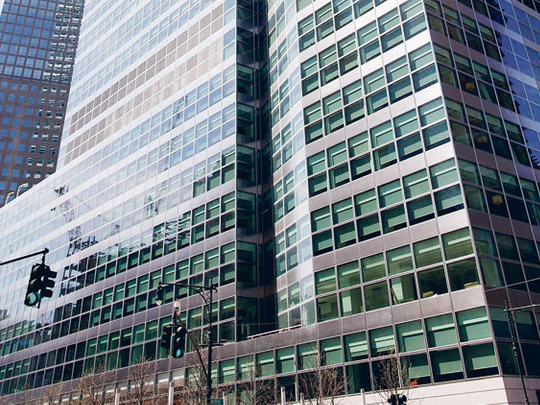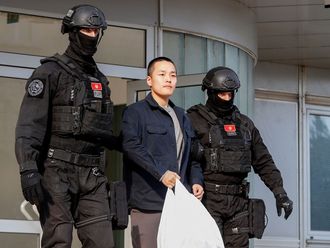
New York: Goldman Sachs Group Inc.'s chief global economist Jim O'Neill said China may strengthen the yuan by between 2 per cent and 5 per cent as early as next week, even as the cabinet signalled caution in ending crisis policies.
O'Neill, who in 2001 coined the term BRIC to highlight the growth potential of Brazil, Russia, India and China, said in an interview on Wednesday in London he was pushing up his forecast on the move from year-end because the currency is undervalued. China may avoid a one-time gain that might endanger exports, while allowing gradual appreciation by June 30 to curb inflation, a survey of economists by Bloomberg News showed.
China has pegged its currency at about 6.8 to the dollar since July 2008, which some US lawmakers say gives the world's fastest-growing major economy an unfair trade advantage. The currency will strengthen 3.1 per cent to 6.62 per dollar by year-end, according to the median estimate.
"If the US Congress hadn't been so noisy about this in the past month, it probably would have already happened," said O'Neill, who has discussed the distortions caused by the dollar peg with Chinese officials in visits to Beijing. "It just makes an enormous amount of sense."
Forwards
Twelve-month non-deliverable yuan forwards strengthened 0.1 per cent to 6.6161 per dollar in Hong Kong. The contracts reflect bets the currency will appreciate 3.2 per cent from the spot rate of 6.8257.
Federal Reserve Chairman Ben Bernanke said on Wednesday that a more flexible yuan would help the world's third-largest economy keep inflation under control. Bernanke, responding to questions from Senator Charles Schumer, a Democrat from New York, said Chinese authorities are also subject to pressure from exporters who want to keep the yuan low against the dollar.
China is seeking a "stable yuan" to control hot money flows, Yao Jian, spokesman for the Ministry of Commerce, told reporters yesterday. Residential and commercial real-estate prices in 70 cities climbed 11.7 per cent in March from a year earlier, the most since data began in 2005.
The economy grew 11.9 per cent in the first quarter from a year earlier, more than the median 11.7 per cent estimate in a Bloomberg News survey. The consumer price index gained 2.4 per cent last month, compared with 2.7 per cent in February, the statistics bureau reported yesterday.
China's cabinet said "rapid" first-quarter growth was largely driven by stimulus policies and a comparison with a low level a year earlier, suggesting officials may be cautious in ending crisis policies.












